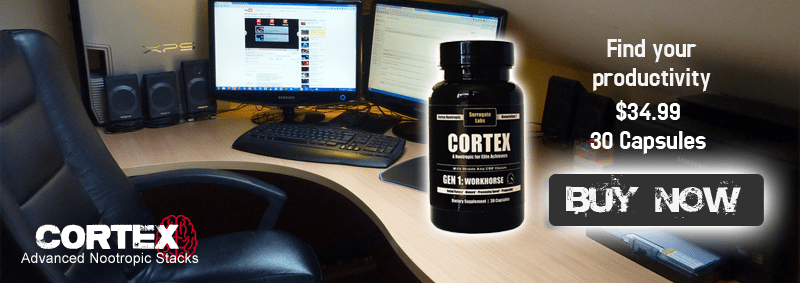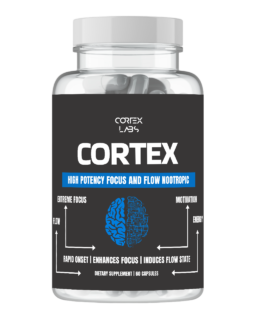
There’s no question about it: college students use nootropics. And frankly, I think it’s a good idea.
Plenty of obviously staged/manufactured arguments, videos, and experiences exist warning people of “bad experiences” with nootropics, and frowning upon their use in a university setting.
And most of them are fraudulent. The most well known is a video where a college kid took Modafinil, did not follow the widely suggested directions for use, and ended up a bit irritable, not able to sleep. It was titled “my smart drugs nightmare,” and the kid’s entire strategy is a great example of exactly how not to interact with nootropics/smart drugs.
Frankly – being on the BBC (find the video and report on it here), it’s not far fetched that it was manufactured by a university, or some sort of excessively politically correct entity. News organizations like BBC are heavily biased, and infuse their belief systems into their content. It’s effectively propaganda.
And then there are a multitude of other videos that discuss college students taking smart drugs and nootropics (which I’m using interchangeably here), in which very vague explanations for why they shouldn’t be taken are given, like students would be “cheating” if they used them, and that there aren’t many “long term studies” to support their safety.
And while the latter contention is actually true and valid enough, the former is utterly bogus. Taking nootropics is not cheating. Is caffeine cheating? No. But it’s virtually the same thing. It’s just widely used and accepted. It’s the number 1 performance compound in America. Caffeine is a nootropic.
Secure a bottle of the Cortex nootropic stack
Targeting better mental performance in a college setting is not only a smart thing to do, it’s extremely noble. And there’s nothing “cheating” about it.
Targeting neurotransmitter functionality, knowing said chemicals atrophy throughout the day, and as you age, is an incredibly intelligent thing to do.
If prescription Adderall is fair game, so are nootropics. And nootropics are considerably safer. Way safer.
So – having taken nootropics/smart drugs for 8 years on and off, experimenting with some of the best compounds out there, I’ve come to learn what the best nootropics for college are. I’ve come to create this list based on examining the function of all nootropics, and how they serve the brain function a college student needs for certain tasks.
The best nootropics for college
Pairing the activity, with the nootropic, looking at the desired mental state and performance functionality, here is the short list:
- For studying for considerable periods of time (EX: studying for a test): Modafinil — Modafinil is a wakefulness promoting drug, that works on inhibiting certain neuro-chemicals (GABA), and facilitating the release of others (serotonin, dopamine, others). It is prescription only, and can be procured via a doctor for particular conditions. They are: extreme daytime tiredness, sleep apnea, narcolepsy, chronic fatigue syndrome, and likely a few others. For procuring Modafinil elsewhere, I can’t say a whole lot other than get yourself acquainted with with Nootropics Subreddit, and explore.
- For test taking (and thus memory recall on what you’ve studied): The Cortex nootropic stack, or Huperzine A (not taken together). The Cortex stack was formulated with mental energy, focus, and working memory in mind. It combines two powerful ingredients that target the neuro-chemicals involved in those actions: Uridine Monophosphate and CDP Choline. It’s used around the world, by everyone from soldiers in the United States Military, to Wall St brokers. It’s no joke. It’s a premium nootropic stack priced at normal nootropic stack price.
Huperzine A, which should be taken in 40-200MCG (micrograms – NOT milligrams) quantities, works on inhibiting an enzyme in the brain in a way that cranks up the availability of a neuro-chemical that allows you to access the working and information recall sectors of your memory. It’s quite powerful, and should not be taken lightly. Dose carefully with this compound, and do not go above 400MCG (again, micrograms).
Both Cortex and Huperzine A are available on the United States, 100% legal, and extremely effective.
- For sleep deficits, and the need to function: Oxiracetam. There’s no question about it, college is an environment in which sleep deficits are commonplace. Folks are up partying, other folks in your dorm are making noise, and it’s difficult to maintain a solid sleep schedule in the midst of all of this.
Oxiracetam is a racetam smart drug, is 100% legal to buy and have in the United States, and works to help the brain release a neuro-chemical called acetylcholine. It also stimulates AMPA receptors like it’s sister, Aniracetam, to produce a stimulatory effect. It is by far, one of the best nootropics to take in college situations in which you haven’t gotten enough sleep.
- For a daily nootropic stack: The AACT stack. The AACT stack is a stack that combines ALCAR, Alpha GPC, Caffeine, and Theanine and provides both a functional benefit, and a stimulatory effect on users. You can find a comprehensive article on the stack here, but suffice it to say, it’s a great daily nootropic stack to improve brain function in a college environment.
In the video below, we discuss that Oxiracetam and Aniracetam are also great daily stacks to take for general brain function. Doses vary, and you should research what doses work for you, but I’ll lay out some general recommendations below:
General dose recommendations for nootropics for college
- Modafinil: between 50-100MG
- Cortex: 2 capsules/Huperzine A: 40-200MCG. Don’t go over 400MCG (again, micrograms).
- Oxiracetam: 700-1000MG
- AACT: self explanatory (300/75/120/200).















